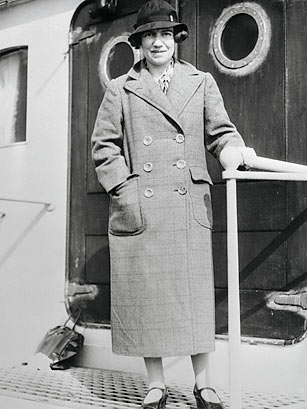
Of her life's work, cultural anthropologist, museum curator and feminist scholar Margaret Mead once said, "I have spent most of my life studying the lives of other peoples — faraway peoples — so that Americans might better understand themselves." Mead's professor and mentor Franz Boas is credited with the concept of cultural relativism in American anthropology, but it was Mead who truly eradicated the concept of the "savage" through her extensive fieldwork in the Pacific. Mead began taking notes on her observations of human behavior after her mother encouraged her interest in studying the development of her younger siblings. This ability to record breathtaking amounts of longitudinal data helped her garner a Ph.D. from Columbia in 1929 and become a curator of the American Museum of Natural History in 1934. Her seminal book, Coming of Age in Samoa, helped many Americans understand the universality of their own experiences for the first time.